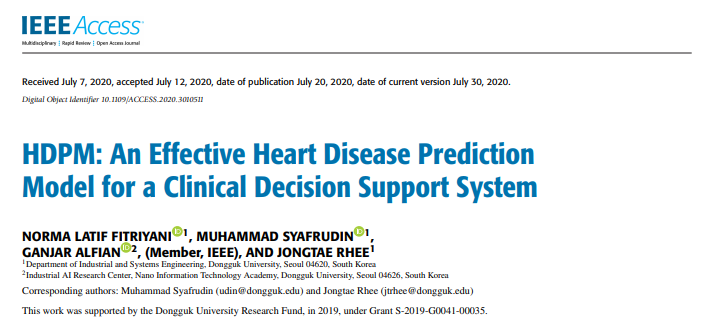
Abstract
Heart disease, one of the major causes of mortality worldwide, can be mitigated by early heart disease diagnosis. A clinical decision support system (CDSS) can be used to diagnose the subjects’ heart disease status earlier. This study proposes an effective heart disease prediction model (HDPM) for a CDSS which consists of Density-Based Spatial Clustering of Applications with Noise (DBSCAN) to detect and eliminate the outliers, a hybrid Synthetic Minority Over-sampling Technique-Edited Nearest Neighbor (SMOTE-ENN) to balance the training data distribution and XGBoost to predict heart disease. Two publicly available datasets (Statlog and Cleveland) were used to build the model and compare the results with those of other models (naive bayes (NB), logistic regression (LR), multilayer perceptron (MLP), support vector machine (SVM), decision tree (DT), and random forest (RF)) and of previous study results. The results revealed that the proposed model outperformed other models and previous study results by achieving accuracies of 95.90% and 98.40% for Statlog and Cleveland datasets, respectively. In addition, we designed and developed the prototype of the Heart Disease CDSS (HDCDSS) to help doctors/clinicians diagnose the patients’/subjects’ heart disease status based on their current condition. Therefore, early treatment could be conducted to prevent the deaths caused by late heart disease diagnosis.
Published in: IEEE Access
DOI: 10.1109/ACCESS.2020.3010511